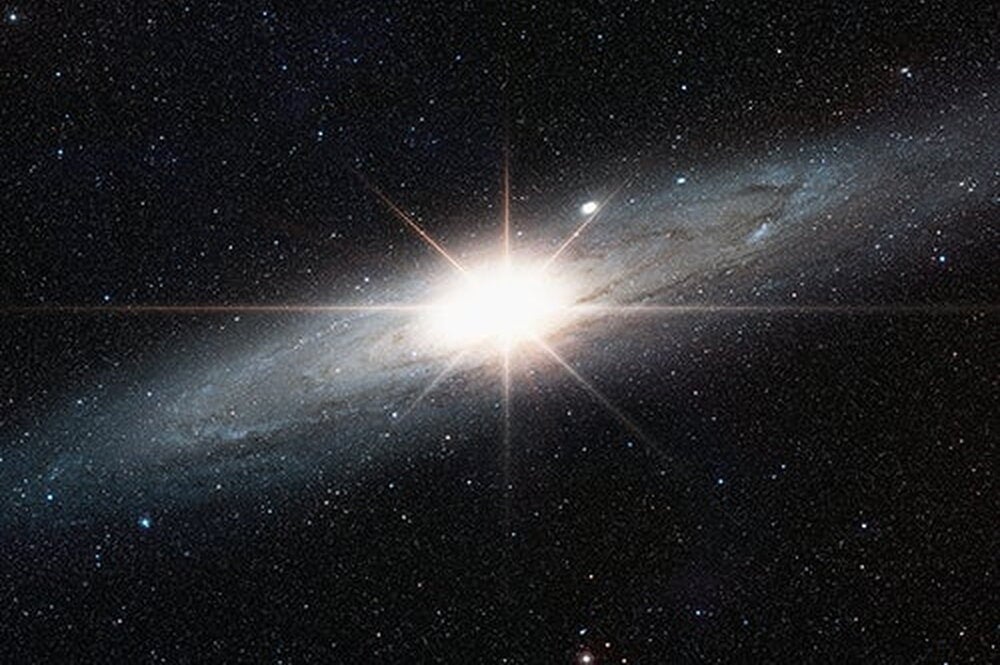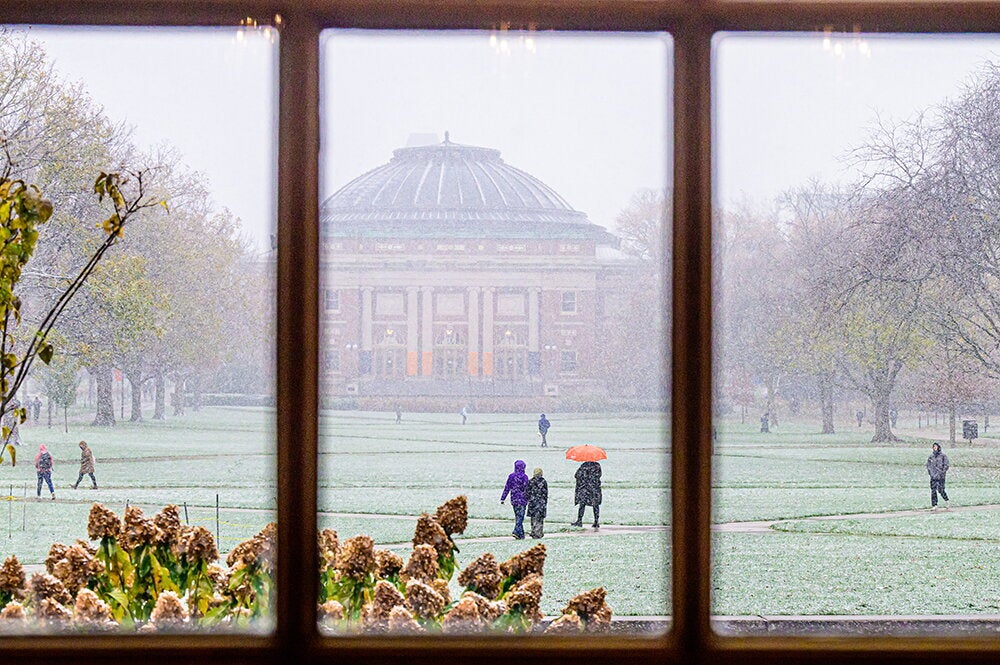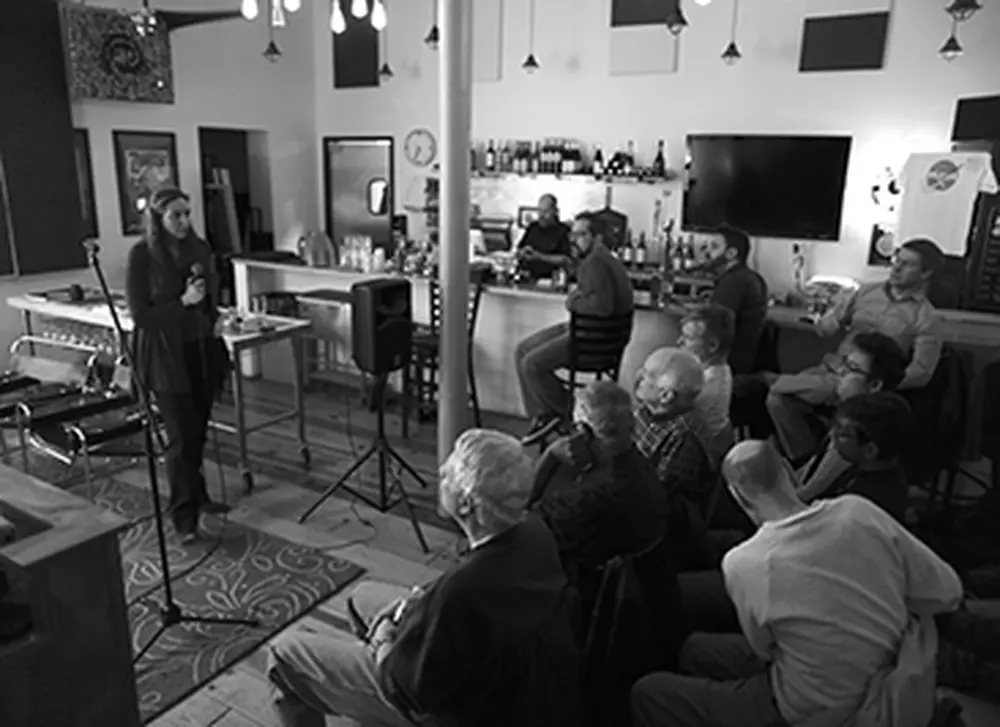
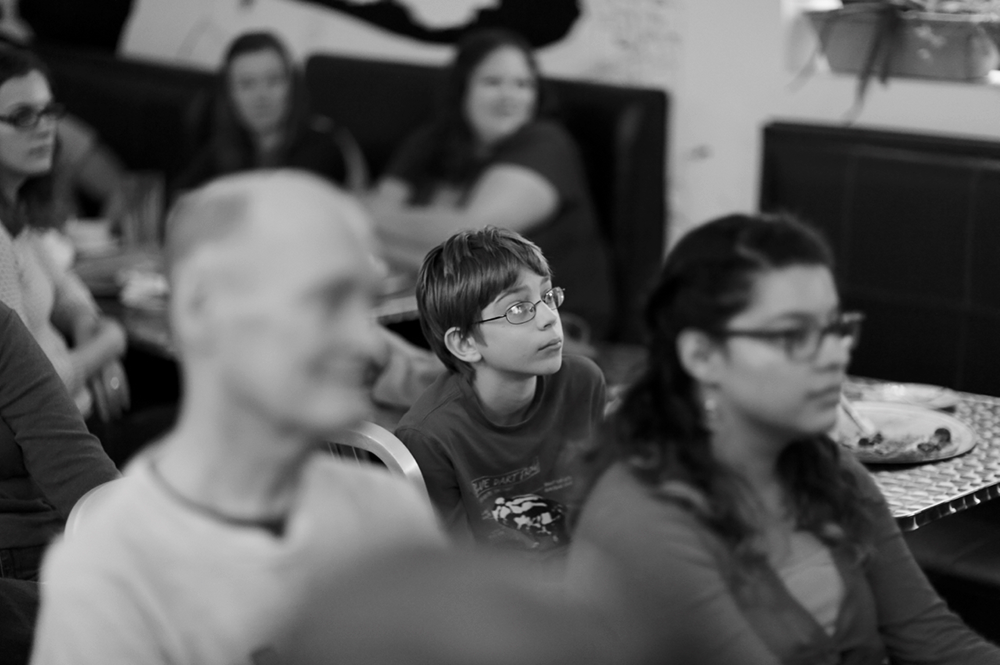
One recent evening in the back room of Pizza M in Urbana, with its hand drawn art covering the walls and paper lanterns lining the ceiling, a crowd of parents, children, couples, students, and others gathered around pizzas and beers to hear more about the night’s main topic: antimatter.
Laughter, the clinking of glasses, and a mother’s occasional instructions to her eager son –“you have to finish your pizza before you ask a question”— filled the room. An elderly woman, using her cane as a gesturing stick, invited attendees to “Join the fun!” Soon the crowd was sitting shoulder-to-shoulder.
Finally, Joaquin Vieira, professor of astronomy and physics, introduced the night’s speaker: Jessie Shelton, professor of physics. After going over the three main guidelines for the night (the presenter should talk for no more than15 minutes before fielding questions, no equations allowed, and only three images or slides may be used) the crowd erupted in cheers to commemorate the one-year anniversary of Astronomy on Tap.
The event was created by the Department of Astronomy in 2016 as a forum to communicate science and topics surrounding science to the public, and to make Illinois faculty available to answer questions from the community in an informal setting. Since its beginning, Astronomy on Tap has rocketed.
“Astronomy on Tap has sustained itself and seems to have enough momentum to keep improving,” Vieira said. “The one-year mark signifies that there is enough interest within the community to keep it going. Equally important is that there is enough interest amongst the faculty on campus. We have speakers lined up for the next year, so there’s interest from both the public and the university community.”
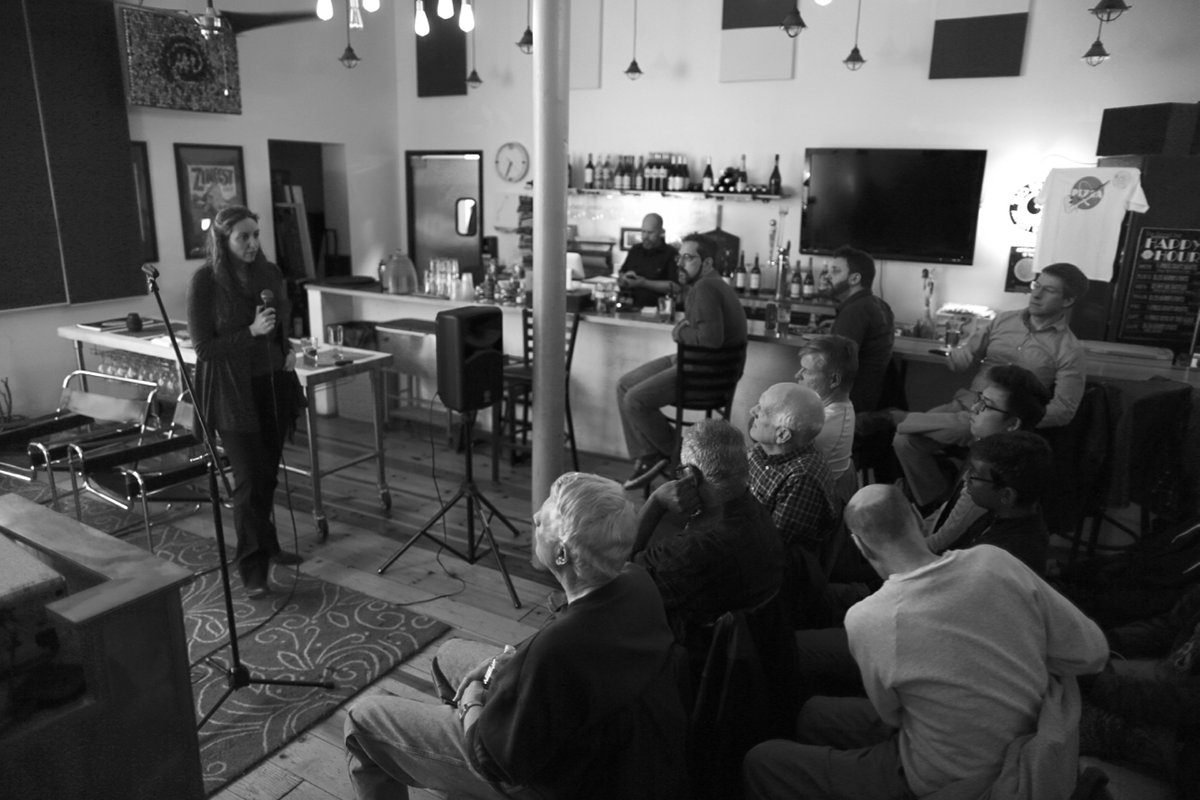
Standing in Pizza M, Shelton engaged the audience with images and straightforward analogies that held everyone’s attention. Bartenders and servers occasionally paused to listen as they delivered drinks and breadsticks to hungry science enthusiasts.
The audience reacted with nods, lots of questions, and discussion that continued into the parking lot long after Shelton’s presentation. Vieira believes this type of engagement is what the community deserves.
“It is crucial for scientists to interact with the public because the public funds all of our research,” he said. “Science is a cornerstone of civilization and society. We, the public, need to support science and we, as scientists, need to explain to the public why it’s important—and not in a way that is talking down to them—but in a way that shares both the content but also the wonder,” Vieira said.
According to Vieira, one of Astronomy on Tap’s main challenges has been getting professors to find different ways to explain their topics without the use of specialized language. Professors typically deliver presentations and lectures on campus with a lot of jargon, but a different approach is required to answer fundamental questions such as “How did the universe begin?” to a crowd of all ages and backgrounds.
Vieira said these challenges have lessened with time, meaning that Astronomy on Tap has been a learning experience for everyone.
“Astronomy is a really nice gateway science,” he said. “Everyone can look up at the sky, everyone sees the sun, and everyone sees the moon go around. Astronomy is an accessible entry into science and one that highlights the fact that we are part of a bigger universe.”
Astronomy on Tap meets every third Thursday at 6 p.m. in the back room (BAR M) of Pizza M. More information can be found here.
